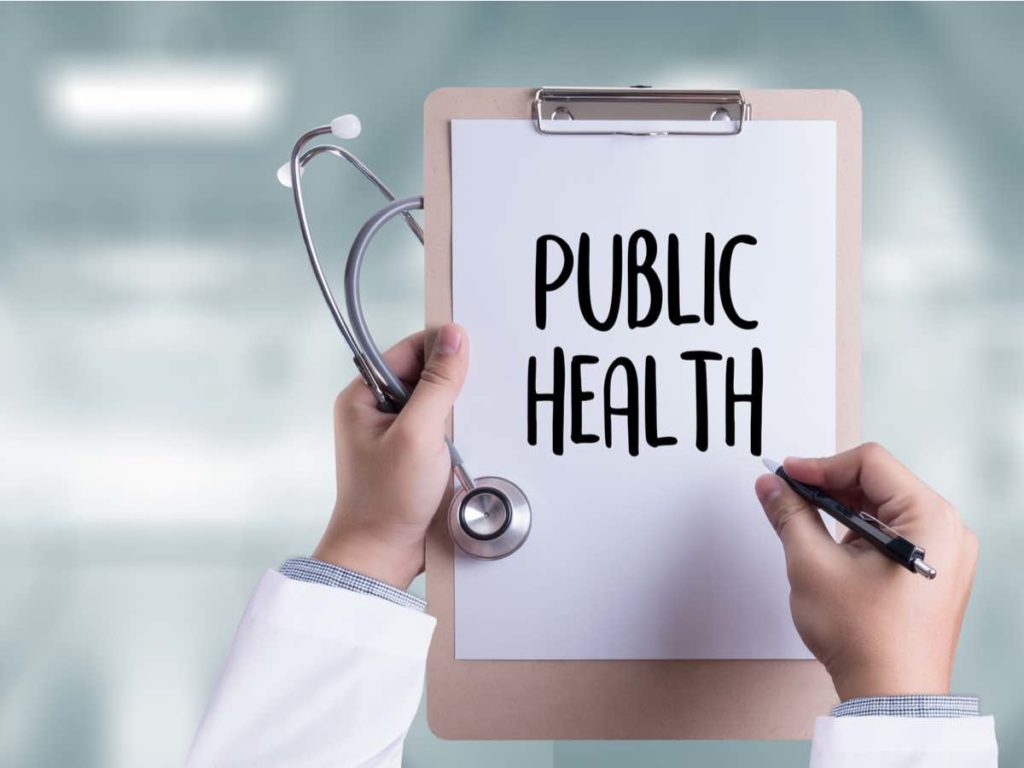Public Health Degree: a Good Degree for Healthcare Changemakers
According to the National Institutes of Health (NIH), there are over 250 healthcare professions, each with a distinctive scope of practice that usually overlaps with those of other related professions.
There is never a shortage of careers for those who like to improve the lives and health of others.
The question is: which one is right for which person?
Earning a degree in public health is an excellent way to penetrate the healthcare sector with various career possibilities, including community health worker, prevention specialist, and clinical research coordinator.
The jobs you can have with it mostly focus on health promotion of communities and populations.
Having a public health degree is nothing like having a doctor of medicine degree and working as a physician who provides direct patient care by assessing, diagnosing, and treating patients.
You will still be under the healthcare umbrella.
However, you will focus more on educating, advocating, and creating policy.

A Hard Undergraduate Degree That’s Rewarding
Public health is within the healthcare dominion.
Unlike physicians and nurses who are specifically in the medical field, individuals with a degree in public health are in several jobs that fall under the — you guessed it! — public health sphere.
It’s a combination of inquiry, research, and action.
Because of this, a public health degree is by no means easy or useless.
But don’t let this drive you away!
Are you passionate about the general population’s health and interested in discovering the root cause of various health issues and ways to prevent diseases effectively?
You might find a public health degree less challenging.
A Program Consisting of Various Disciplines
One of the things that makes a public health degree hard is that it’s multidisciplinary.
It equips students with foundational knowledge and transferable skills from various areas of study, all of which are crucial in preparing for numerous equally demanding public health careers.
The five core disciplines of public health are:
- Biostatistics
- Epidemiology
- Health policy
- Social and behavioral sciences
- Environmental health sciences
No, you will not specialize in just one of these core disciplines.
Throughout your career as a public health degree program student, you will gain mastery of all to allow you to carry out your duties and responsibilities as a public health professional in your chosen area.
Similarly, they allow you to be eligible to sit for the Certified Health Education Specialist (CHES) exam.
Specialize in a Public Health Area With a Major
There are numerous careers available for public health degree holders.
Similarly, they can pursue their careers in a variety of settings, including but not limited to the following:
- National and local health departments and agencies
- National, state, and local governments
- Private health-based organizations
- Non-profits
- Insurance companies
- Health research facilities
- Academia
As it’s a multidisciplinary degree, public health prepares you for several jobs.
At some colleges, students enrolled in a public health undergraduate degree program must complete prerequisite courses and/or achieve a minimum overall GPA before being able to declare a major.
Public health has three P’s:
- Prevention
- Protection
- Promotion
It helps to remember these P’s of public health when mapping out your career goal and deciding on a college major — your choice can substantially impact your marketability and efficacy in your chosen line of work in public health.
You can establish a more defined career path or explore possibilities by making your public health degree more focused on a particular area in the healthcare segment with a major.
Declaring the right major lets you lay the path for a professional opportunity or pursue an interest.
Below are some of the most popular majors among public health degree students:
- Anthropology
- Biology
- Economics
- Environmental health
- Chemistry
- Community health
- Nutrition
- Occupational safety and health
- Psychology
- Public policy
- Sociology
- Statistics
- History

Which College Offers the Best Public Health Program?
Not all public health degrees are created equal.
It’s a good idea to go for an undergraduate degree in public health at an institution offering the best academics, top-notch faculty, a wide variety of college majors and electives, and superb research opportunities.
Besides researching colleges, you should also carefully look into the public health degree each one offers.
Failure to enroll in the best possible public health degree accessible to you can impact your college experience and your life as a professional in the healthcare sector.
According to Niche, the following are the top 15 Best Colleges for Public Health in America:
| Ranking | Institution |
|---|---|
| #1 | Johns Hopkins University |
| #2 | Duke University |
| #3 | Northwestern University |
| #4 | University of Pennsylvania |
| #5 | Brown University |
| #6 | Georgetown University |
| #7 | Tufts University |
| #8 | University of Michigan – Ann Arbor |
| #9 | New York University |
| #10 | University of Southern California |
| #11 | University of Florida |
| #12 | Cornell University |
| #13 | University of Texas at Austin |
| #14 | University of California, Irvine |
| #15 | University of California, Berkeley |
US News has a similar ranking.
Let’s look at the top 15 Best Public Health Schools of the popular college ranker:
| Ranking | Institution |
|---|---|
| #1 | Johns Hopkins University |
| #2 | Harvard University |
| #2 | University of North Carolina – Chapel Hill |
| #4 | Emory University |
| #5 | Columbia University |
| #5 | University of Michigan – Ann Arbor |
| #5 | University of Washington |
| #8 | Boston University |
| #9 | University of California, Berkeley |
| #9 | University of California, Los Angeles |
| #11 | Yale University |
| #12 | George Washington University |
| #12 | Tulane University |
| #12 | University of Minnesota – Twin Cities |
| #15 | CUNY School of Public Health |
Based solely on the rankings above, both Niche and US News agree that Johns Hopkins is the best postsecondary institution in the United States for students who wish to earn a degree in public health.
However, you should do your research and refrain from choosing a school based alone on college rankings.
Professional Life With a Public Health Degree
The steps to take after earning your degree in public health will depend on your career goal.
Armed with a public health undergraduate degree, you can apply for various jobs.
However, some career options may require taking additional courses or certifications, while others may require sitting for a professional exam to obtain a license.
For instance, you can choose to become a health education specialist.
Taking the CHES exam should be your next move to become certified.
To be eligible to take it, you should also meet some requirements, such as a major in a health education discipline and 25 semester hours of Areas of Responsibility and Competency for Health Education Specialists.

Highest Paying Jobs for Public Health Degree Holders
Because public health is a multidisciplinary degree, it opens doors to various career opportunities.
Some are more demanding than others, while others are more rewarding than the rest — of course, it will depend on your interests, passion, and calling.
Certain public health degrees jobs pay more than some, too.
Below is a table of some of the highest-paying jobs in the public health industry, including only those that allow you to make an average of more than $60,000 per year:
| Job Position | Average Annual Salary |
|---|---|
| Medical Director | $172,642 |
| Public Health Director | $147,759 |
| Public Health Care Consultant | $120,262 |
| Biostatistician | $107,177 |
| Environmental Health and Safety Officer | $97,859 |
| Health Safety Engineer | $94,737 |
| Biostatistician | $92,270 |
| Executive Health Director | $89,504 |
| Research Scientist | $84,701 |
| Health Services Administrator | $82,772 |
| Industrial Hygienist | $82,575 |
| Public Health Program Manager | $78,416 |
| Health Informatics Analyst | $76,025 |
| Assistant Public Health Professor | $68,668 |
| Epidemiologist | $68,172 |
| Director of Environmental Services | $67,348 |
| Behavioral Health Manager | $62,957 |
| Public Health Manager | $62,155 |
| Health Service Manager | $60,738 |
| Environmental Health Scientist | $60,238 |
What Now After Earning a Bachelor of Science in Public Health?
What can you do with a public health degree?
It’s a common question among high schoolers looking for an undergraduate degree with great career opportunities.
However, it’s also important to ask what you can do after having a public health degree.
Your educational pursuit in public health doesn’t have to end after earning a bachelor’s degree.
Throughout your career in the healthcare industry, specifically in the public health area, you may have to go through continued education and training to update your foundational knowledge and skill set.
Certifications may be necessary to take on more specific roles or climb the career ladder.
They may also be essential since the public health landscape is always changing — newer pandemic crises and emergency situations are constant threats to the population.
Not everyone with a career in public health needs to obtain a master’s degree.
However, having a master of public health, which takes around two years to complete, can be advantageous if you want to assume a supervisory or managerial role in the public or private sector.
It will also allow you to focus on a particular discipline if it’s your career goal to specialize in something.
Whether you aim to teach a public health course at a university or work as an advanced researcher at a facility, consider getting your hands on a doctor of public health, which usually takes three to four years to complete.
Read Next: Is English a Good Degree?
Disclaimer: The views and opinions expressed in this article are those of the authors and do not necessarily represent those of the College Reality Check.





